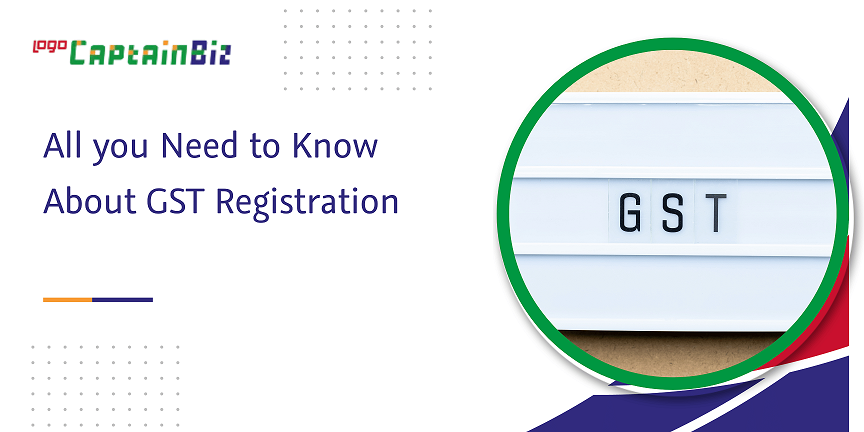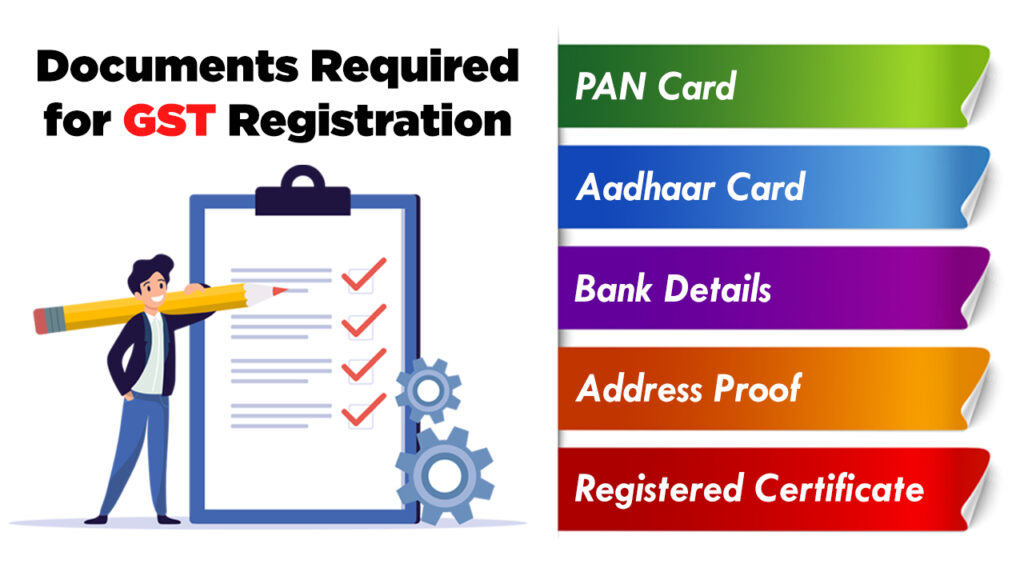How CFO Account & Services Can Streamline Your GST Registration Refine in Singapore
How CFO Account & Services Can Streamline Your GST Registration Refine in Singapore
Blog Article
Browsing the Intricacies of GST Enrollment: A Comprehensive Guide for Entrepreneur
Navigating the intricacies of GST registration can be a daunting job for lots of company owner, as it involves a myriad of regulations, policies, and processes that need to be complied with. With the ever-evolving landscape of tax legislations, making certain compliance and understanding the intricacies of GST enrollment is crucial for the smooth operation of any type of company. From determining eligibility and gathering the necessary documents to maximizing procedures for maximum performance, this extensive guide aims to give entrepreneur with the expertise and tools required to browse the intricacies of GST registration effectively.
Qualification for GST Registration
Company proprietors must meet particular standards to establish their eligibility for GST enrollment. In general, services with an annual turnover going beyond a particular threshold are called for to sign up for Goods and Solutions Tax Obligation (GST)
Moreover, organizations that are signed up under any previous tax program, such as VAT or solution tax, are usually required to change to GST enrollment. By sticking to the essential criteria, services can smoothly browse the intricacies of GST registration and run legitimately within the tax obligation framework.
Files Required for Enrollment
To complete the GST enrollment procedure, services need to collect and submit a thorough set of files. The key documents required for GST enrollment normally include evidence of service registration or unification such as the Certificate of Unification, partnership deed, or any kind of other registration certificate. Additionally, organizations need to give identity and address evidence of the companions or marketers, which can be in the form of Aadhar card, PAN chauffeur, ticket, or card's license. Financial documents such as financial institution statements, proof of workplace like rental arrangement or electrical energy bill, and authorized signatory details are also important for the enrollment process.
Additionally, details records connected to the nature of the organization, such as a checklist of services or goods supplied, HSN codes for items, and cavity codes for solutions, might be needed - Why choose CFO Account & Services for GST registration in Singapore. It is important for companies to make certain that all papers sent are exact, updated, and in the suggested layout to stay clear of any hold-ups or problems in the GST registration process
Process of GST Registration
Having actually put together the requisite paperwork, companies continue to start the GST registration process by involving with the on-line portal marked for registration. This on-line portal is the Product and Solutions Tax Network (GSTN) portal, which works as the key platform for all GST-related tasks in India. Upon accessing the portal, organizations are required to fill in the GST registration form with exact information regarding their service activities, turnover, and various other pertinent info.
Once the form read the article is completed and submitted on the website, the GSTN confirms the information given by the service. If any type of disparities are discovered, the applicant may be called for to supply extra details or clarification. Adhering to effective verification, a GST registration certificate is provided to the service entity. This certificate contains a special Goods and Solutions Tax Obligation Recognition Number (GSTIN) that is used for all GST-related transactions.
It is vital for organizations to make certain that the information offered throughout the GST registration procedure is exact and as much as day to avoid any kind of potential issues or delays in acquiring the GST registration certificate.
Comprehending GST Conformity

Companies need to be familiar with the numerous GST conformity demands based on their turnover, nature of services or products, and the states in which they operate. It is important to remain updated on any type of changes in GST legislations and regulations to stop any type of non-compliance problems.
Non-compliance with GST guidelines can cause large fines, charges, and even lawful consequences. As a result, organizations must invest time and resources in educating themselves and their staff on GST conformity. Looking for specialist help from tax obligation experts or experts can also help in navigating the intricacies of GST conformity and guaranteeing that businesses run within the lawful framework.

Tips for Optimizing Company Procedures
For boosted performance and performance in company operations, calculated planning and structured procedures are necessary parts. One idea for maximizing service operations is to utilize innovation properly (Why choose CFO Account & Services for GST registration in Singapore). Carrying out the right software program options can automate recurring tasks, boost accuracy, Recommended Site and enhance general workflow performance. Additionally, conducting regular efficiency examinations and gathering comments from workers can give valuable insights for recognizing bottlenecks and areas for renovation.
An additional essential facet is focusing on jobs based on their value and deadlines. By producing a clear hierarchy of tasks and establishing sensible timelines, services can make sure that essential tasks are completed on time. Promoting a culture of open communication and cooperation among group members can lead to enhanced efficiency and development.

Verdict
Finally, browsing the intricacies of GST registration needs a clear understanding of qualification criteria, required documents, enrollment processes, and compliance requirements. By sticking to these guidelines and optimizing organization procedures, company owner can ensure smooth operations and conformity with the GST policies. It is important for companies to stay enlightened and updated on GST policies to avoid any fines or lawful issues.
The crucial files required for GST published here enrollment typically include evidence of organization enrollment or incorporation such as the Certification of Unification, collaboration deed, or any kind of other enrollment certification.Having set up the requisite documents, services proceed to initiate the GST registration procedure by engaging with the on-line website designated for enrollment. Upon accessing the website, businesses are required to load out the GST enrollment form with precise information regarding their service tasks, turnover, and other relevant details.
In order to keep adherence to GST regulations and prevent charges, businesses must focus on recognizing GST conformity. By sticking to these standards and maximizing organization operations, service owners can make sure smooth procedures and compliance with the GST regulations.
Report this page